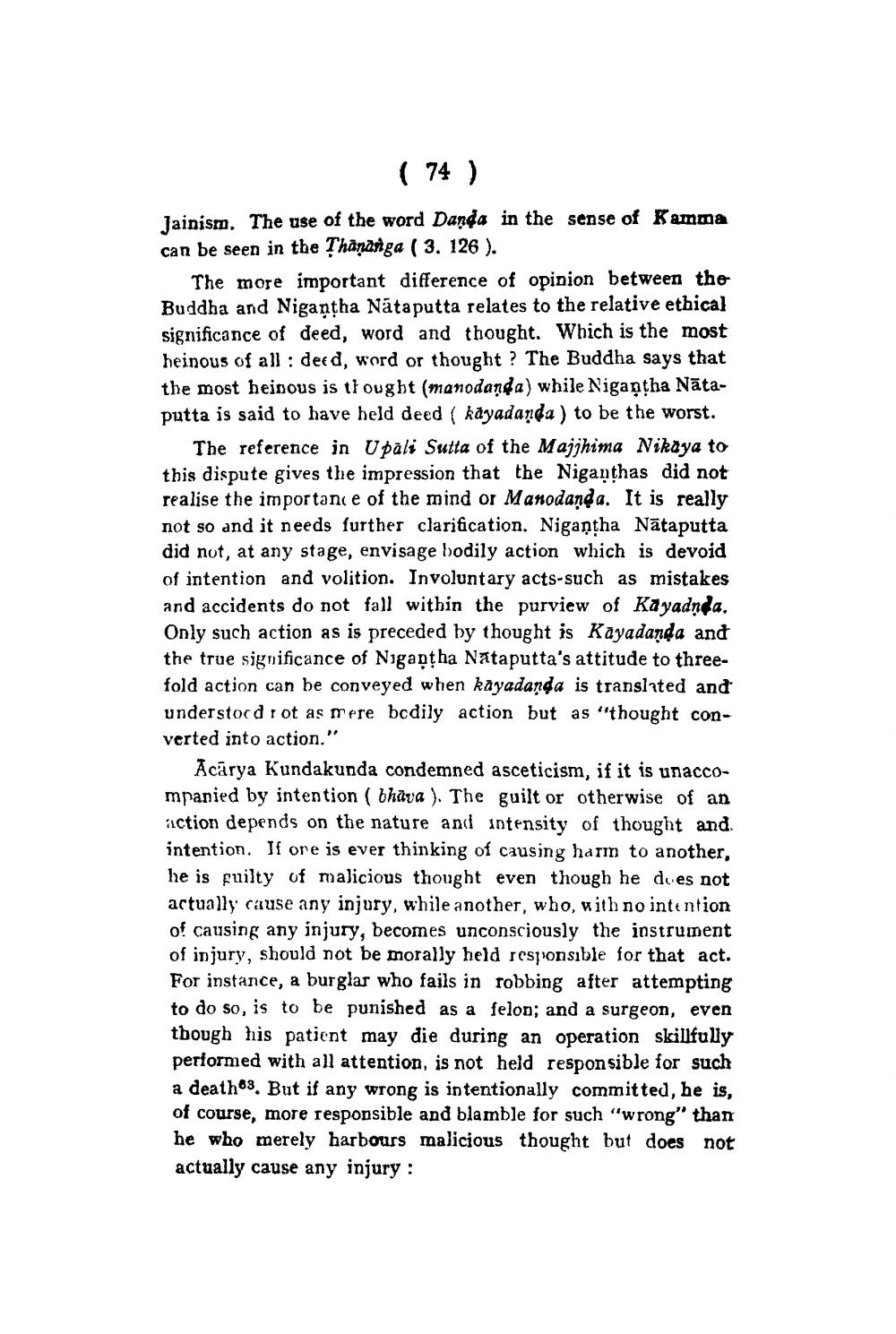________________
( 74 )
Jainism. The use of the word Danda in the sense of Kamma can be seen in the Thananga (3. 126).
The more important difference of opinion between the Buddha and Nigantha Nataputta relates to the relative ethical significance of deed, word and thought. Which is the most heinous of all deed, word or thought? The Buddha says that the most heinous is thought (manodanda) while Nigantha Nataputta is said to have held deed ( kayadanda) to be the worst.
The reference in Upali Sutta of the Majjhima Nikaya to this dispute gives the impression that the Niganthas did not realise the importance of the mind or Manodanda. It is really not so and it needs further clarification. Nigaṇṭha Nataputta did not, at any stage, envisage bodily action which is devoid of intention and volition. Involuntary acts-such as mistakes and accidents do not fall within the purview of Kayadnda. Only such action as is preceded by thought is Kayadanda and the true significance of Nigantha Nataputta's attitude to threefold action can be conveyed when kayadaṇḍa is translated and understocd rot as mere bodily action but as "thought converted into action."
Acarya Kundakunda condemned asceticism, if it is unaccompanied by intention ( bhava ). The guilt or otherwise of an action depends on the nature and intensity of thought and. intention. If ore is ever thinking of causing harm to another, he is guilty of malicious thought even though he does not actually cause any injury, while another, who, with no intention of causing any injury, becomes unconsciously the instrument of injury, should not be morally held responsible for that act. For instance, a burglar who fails in robbing after attempting to do so, is to be punished as a felon; and a surgeon, even though his patient may die during an operation skillfully performed with all attention, is not held responsible for such a death. But if any wrong is intentionally committed, he is, of course, more responsible and blamble for such "wrong" than he who merely harbours malicious thought but does not actually cause any injury:




